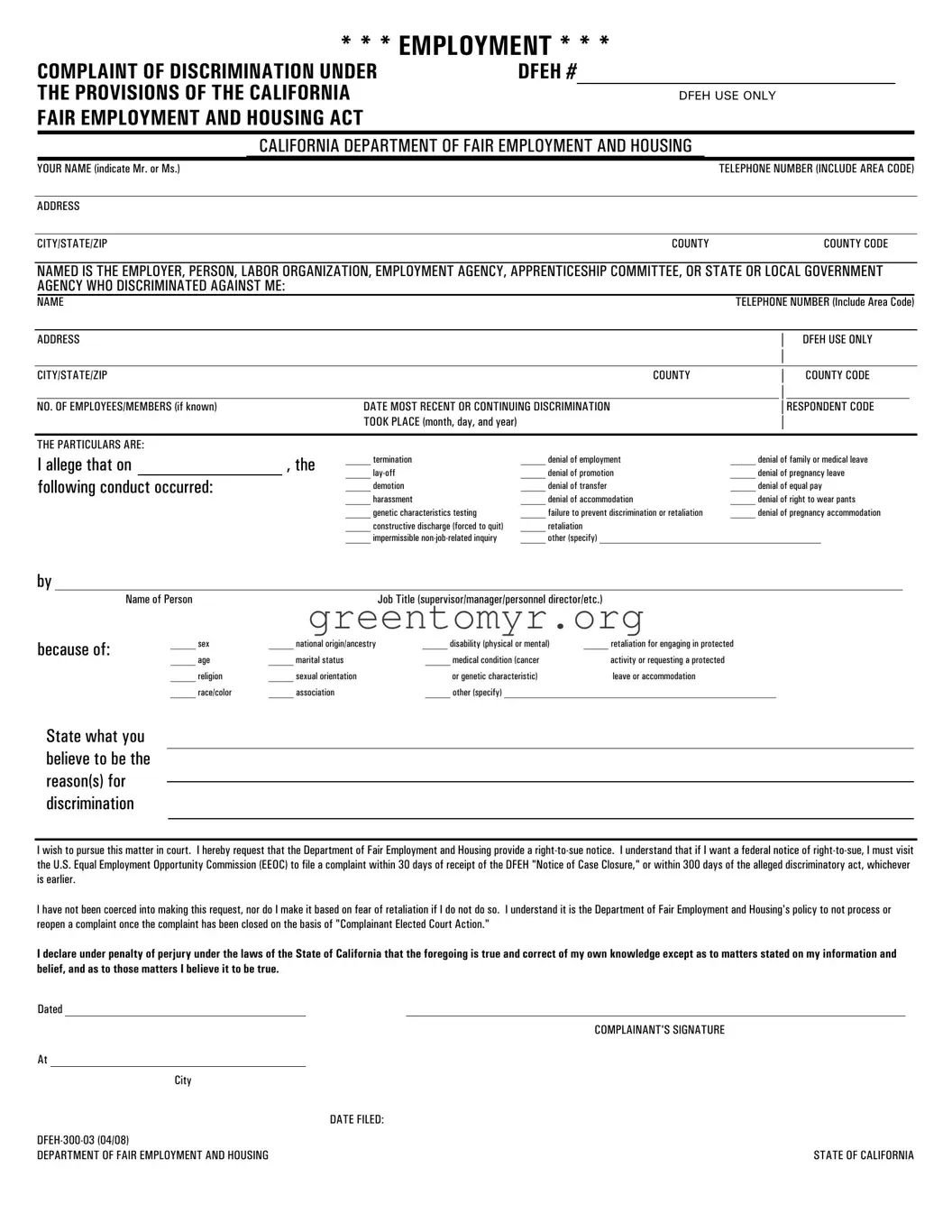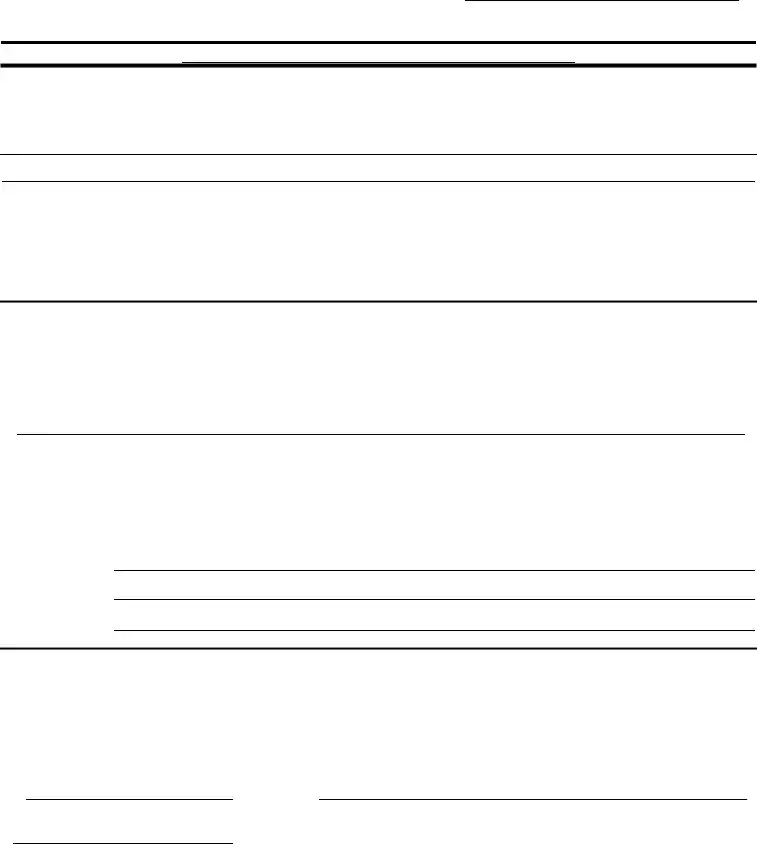YOUR RACE:/ETHNICITY (Check one)
__ African-American __ African - Other
__ Asian/Pacific Islander (specify)___________
__ Caucasian (Non-Hispanic) __ Native American
__ Hispanic(specify)____________________
YOUR PRIMARY LANGUAGE (specify)
_______________________________________
YOUR AGE: __ __
IF FILING BECAUSE OF YOUR NATIONAL ORIGIN/ANCESTRY, YOUR NATIONAL ORIGIN/ANCESTRY (specify)
_______________________________________
IF FILING BECAUSE OF DISABILITY,
YOUR DISABILITY:
__ AIDS
__ Blood/Circulation
__ Brain/Nerves/Muscles
__ Digestive/Urinary/Reproduction __ Hearing
__ Heart
__ Limbs (Arms/Legs) __ Mental
__ Sight
__ Speech/Respiratory __ Spinal/Back
IF FILING BECAUSE OF MARITAL STATUS,
YOUR MARITAL STATUS: (Check one)
__ Cohabitation __ Divorced __ Married __ Single
IF FILING BECAUSE OF RELIGION,
YOUR RELIGION: (specify)
____________________________________
IF FILING BECAUSE OF SEX, THE REASON: __ Harassment
__ Orientation __ Pregnancy
__ Denied Right to Wear Pants
__ Other Allegations (List) ________________________
DFEH-300-03-1 (04/08)
Department of Fair Employment and Housing
State of California
YOUR GENDER: __ Female __ Male
YOUR OCCUPATION: __ Clerical
__ Craft
__ Equipment Operator __ Laborer
__ Manager
__ Paraprofessional __ Professional __ Sales
__ Service __ Supervisor __ Technician
HOW YOU HEARD ABOUT DFEH: __ Attorney
__ Bus/BART Advertisement __ Community Organization __ EEOC
__ EDD __ Friend
__ Human Relations Commission __ Labor Standards Enforcement __ Local Government Agency __ Poster
__ Prior Contact with DFEH __ Radio
__ Telephone Book __ TV
__ DFEH Web Site
DO YOU HAVE AN ATTORNEY WHO HAS AGREED TO REPRESENT YOU ON YOUR EMPLOYMENT DISCRIMINATION CLAIMS IN COURT? IF YOU CHECK “YES”, YOU WILL BE RESPONSIBLE FOR HAVING YOUR ATTORNEY SERVE THIS DFEH COMPLAINT.
PLEASE PROVIDE YOUR ATTORNEY’S NAME, ADDRESS AND PHONE NUMBER:
_______________________________________
_______________________________________
_______________________________________


